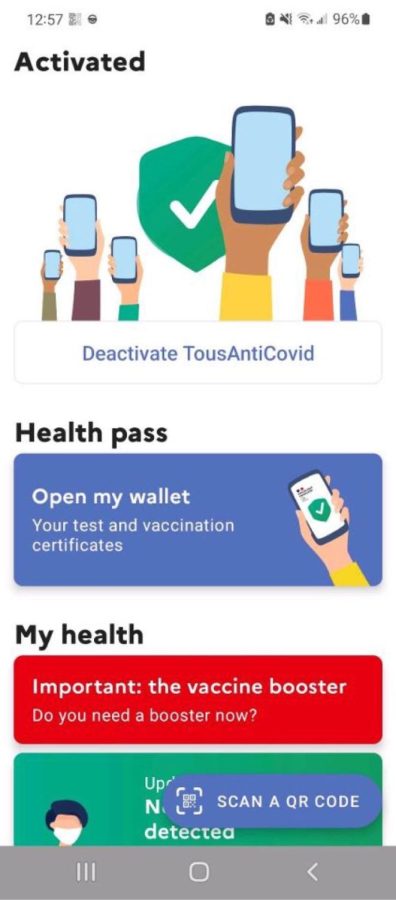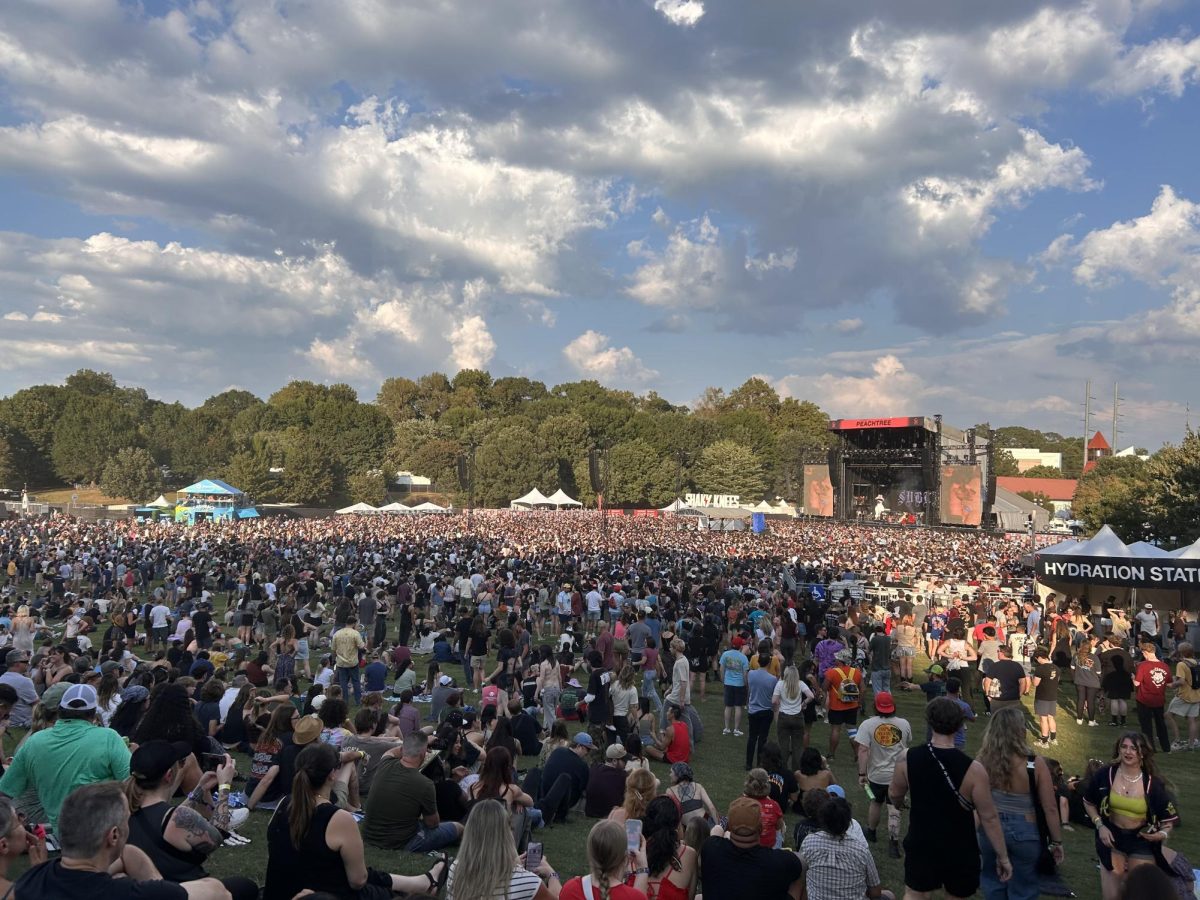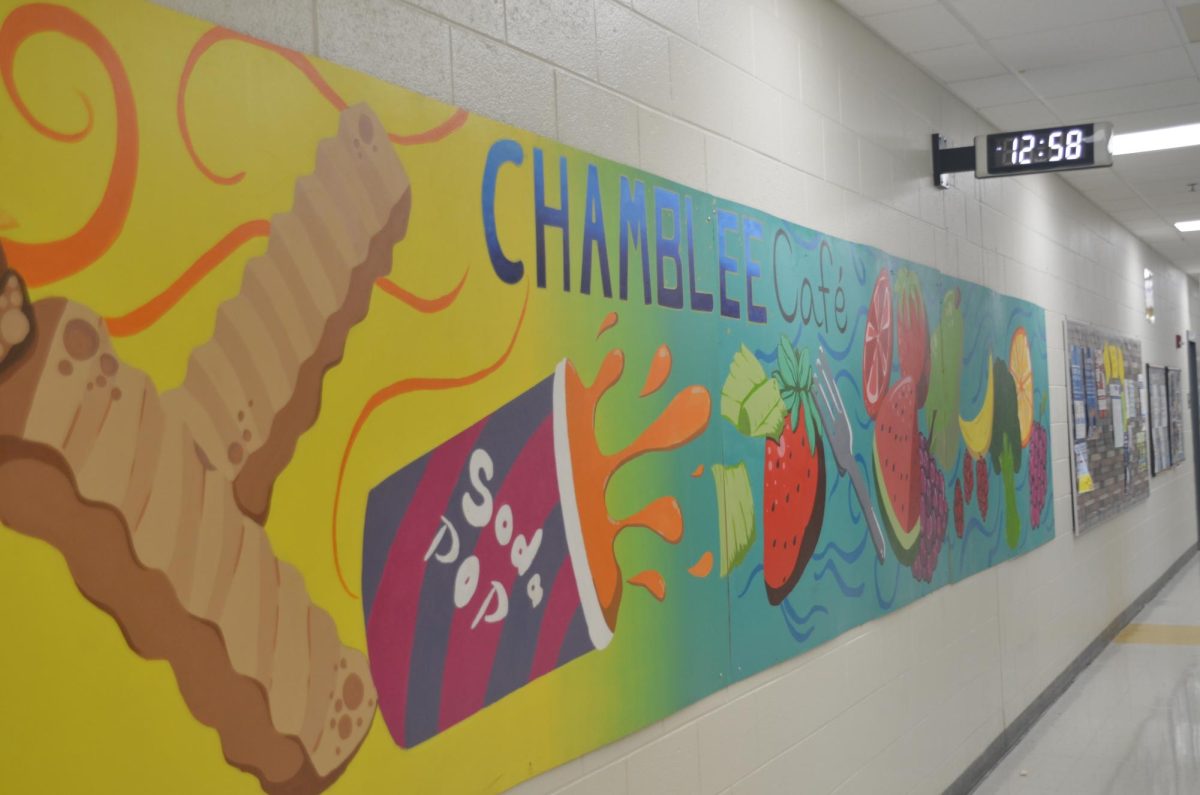Getting Carded: Vaccination Cards and Their Use (Or Lack Thereof)
Photo courtesy of the Blue & Gold
French COVID-19 and vaccine app, would America ever develop one?
December 6, 2021
Whether receiving Pfizer, Moderna, or Johnson & Johnson, Americans were sure to have received a vaccination card along with becoming immunized. The small piece of card stock shows that the cardholder has officially received the COVID-19 vaccine. While physically small, only four by three inches, the card serves as the entrance key to unique events for vaccinated people across the country. Many Chamblee students, vaccines in arm and cards in hand, are taking advantage of various experiences that are opening up for those who are protected against the virus.
“I always keep it in my wallet, just in case. You never know the situation you’ll run into,” said Chamblee student Ryan Lovejoy (‘23).
With the recent return to school, many students have gone on trips, taking advantage of the loosening of travel restrictions. Although travel is permitted, many places remain stringent with mask and vaccination policies
“In New York, they require proof of vaccination to go into any indoor restaurant and a lot of other buildings,” said Lovejoy, who visited the Big Apple over fall break. “I’d have to show my vaccine card and my ID.”
Many New Yorkers use their phones to show that they have been vaccinated.
“For my cousins who are New Yorkers, they have an app that’s just on their phone, [which] they can just show,” said Lovejoy. “Having it as an app is a really neat idea.”
Other countries have even stronger restrictions. Yesim Ozbarlas, one of Chamblee’s German teachers, recently traveled to Italy, where she was required to have been vaccinated to enter the country.
“I had to show a negative [COVID-19] test and, of course, my vaccine card. Then you have to fill out an online document, saying where you’re staying, [what] flights, and all the details […] that’s like a QR code [… that] they trace you with. And then they have an app now where you can show that you’re vaccinated,” said Ozbarlas.
Similar to Lovejoy’s New York experience, it was required for Ozbarlas to show proof of vaccination upon entry into an establishment.
“You have to show your vaccine card everywhere you enter,” said Ozbarlas. “People were still wearing masks [despite] a high percentage [of vaccinations].”
Back in Georgia, many places aren’t as strict in requiring a mask, much less when it comes to vaccinations. In fact, various state government functions cannot require vaccine passports, as per executive order by Governor Brian Kemp. While vaccinations are certainly recommended by many institutions, few go as far as to require them. Even with functions such as concerts and sporting events, few require proof of vaccination upon entry.
“I did not have to use my vaccine card,” said Mia Woods (‘22) who attended a Dayglow concert. “I was a little concerned about going.”
Additionally, many places in Georgia do not have a mask mandate. Schools, restaurants, and other facilities have faced controversy following their attempts to impose restrictions requiring facial coverings.
“Nobody cared really and not that many people [were] wearing masks either [at the concert],” said Woods.
A step further, vaccine requirements have been considered by some to serve as a solution to help stop the spread of the virus. Many believe that a system similar to that of New York City would also work in Atlanta.
“I don’t think [vaccine cards at restaurants are] excessive at all,” said Woods. “So many people’s lives have been permanently changed for the worse. […] It might seem a little extreme to most people, but I think for the events that have happened, it’s appropriate.”
Arwen Coy (‘22) attended Shaky Knees and had to show her vaccine card to enter the venue.
“I actually forgot it at home! But I had a picture and they accepted that,” said Coy.
Even though everyone had to present their card, the process was not very thorough.
“I think it would have been easy enough to present a fake card or a picture of someone else card since they weren’t matching IDs, so I would assume that some [attendees] weren’t vaxxed,” said Coy.
Overall, vaccine cards have opened up students to experiences that otherwise, they wouldn’t have been able to safely enjoy. They nonetheless remain a controversial subject in Georgia for private businesses and schools as the pandemic rages on.











